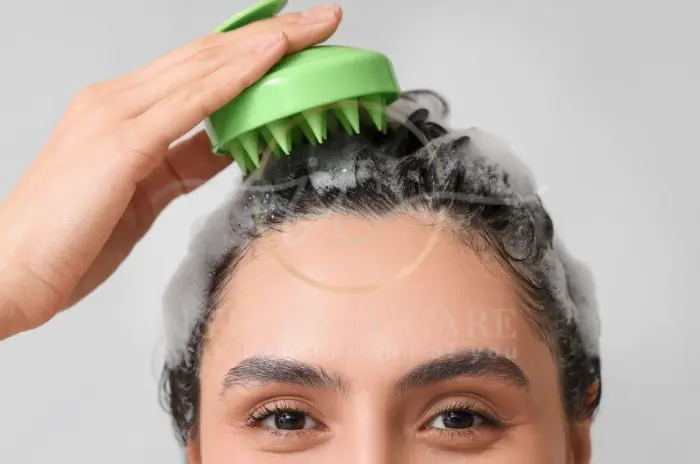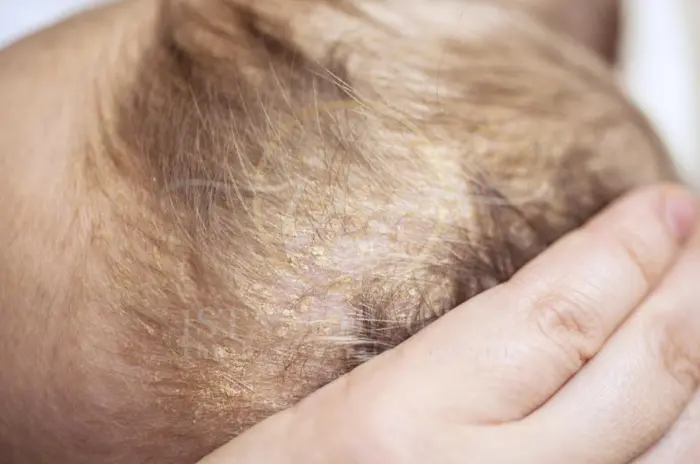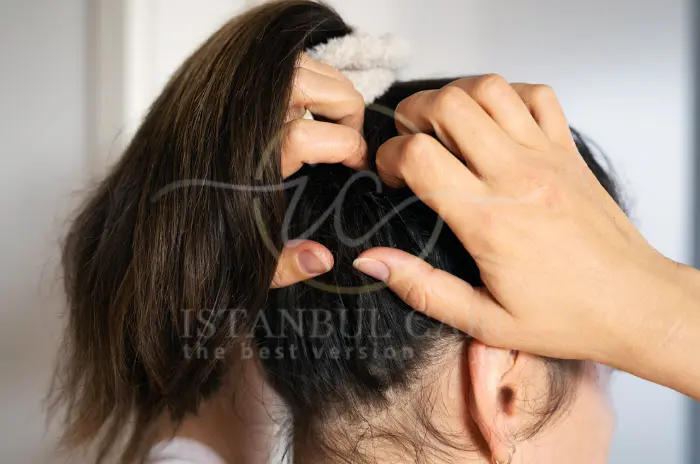Scalp eczema affects millions worldwide, causing significant discomfort and impacting quality of life. At Istanbul Care intermediary organization, we understand the challenges of this persistent condition. This guide explores effective natural remedies and proven treatments for successful scalp eczema management.
Scalp eczema, medically known as seborrheic dermatitis, is more than a cosmetic concern. It's a complex condition requiring proper understanding and management strategies. The condition affects people of all ages, from infants with cradle cap to adults experiencing chronic flare-ups.

Eczema on Scalp: Proven Natural Remedies and Treatments
Scalp eczema affects millions worldwide, causing significant discomfort and impacting quality of life. At Istanbul Care intermediary organization, we understand the challenges of this persistent condition. This guide explores effective natural remedies and proven treatments for successful scalp eczema management.
Scalp eczema, medically known as seborrheic dermatitis, is more than a cosmetic concern. It's a complex condition requiring proper understanding and management strategies. The condition affects people of all ages, from infants with cradle cap to adults experiencing chronic flare-ups.
Understanding Scalp Eczema and Its Common Symptoms
Scalp eczema manifests as a chronic inflammatory condition primarily affecting oil-rich scalp areas. Unlike simple dandruff, this condition involves deeper inflammation and complex symptoms that significantly impact daily comfort.
Primary symptoms include persistent, intense itching that worsens during stress or environmental changes. Affected individuals experience red, inflamed patches scattered across the scalp, creating uncomfortable and aesthetically concerning areas. These patches are accompanied by flaky, white or yellowish scales that stick to hair strands and fall onto clothing.
Many patients report a dry, tight feeling in affected areas, as if skin is being stretched. This sensation intensifies during weather changes or after washing with inappropriate products. In severe cases, excessive scratching leads to hair loss in affected regions, creating additional anxiety about appearance.
| Scalp Region | Frequency | Typical Symptoms | Severity |
|---|---|---|---|
| Crown area | Very High (85%) | Thick scaling, redness | Moderate-Severe |
| Hairline | High (70%) | Flaking, itching | Mild-Moderate |
| Behind ears | Moderate (60%) | Crusting, inflammation | Moderate |
| Nape of neck | Moderate (55%) | Scaling, tenderness | Mild-Moderate |
The condition follows cyclical patterns with calm periods followed by sudden flare-ups. During active phases, symptoms intensify due to triggers including stress, hormonal changes, weather fluctuations, or irritating substances.
Main Causes and Triggers of Scalp Eczema
Scalp eczema develops through complex interactions of genetic predisposition, environmental factors, and immune dysfunction. Individuals with family histories of eczema, asthma, or allergies are significantly more likely to develop this condition.
The biological foundation involves several key factors. Malassezia yeast overgrowth, naturally present on healthy scalps, becomes problematic when proliferating excessively. This triggers inflammatory responses in susceptible individuals, causing characteristic redness, scaling, and itching. Compromised skin barrier function allows irritants to penetrate easily, perpetuating inflammation cycles.
Hormonal fluctuations significantly impact symptom development. Patients notice worsening during puberty, pregnancy, menopause, or hormonal stress periods. These changes affect sebum production and skin cell turnover, creating conditions favoring yeast overgrowth.
Environmental triggers include:
Weather-related factors significantly impact symptoms. Cold, dry winter air strips scalp moisture, while high humidity promotes yeast growth. Sudden temperature changes trigger immediate flare-ups in sensitive individuals.
Product-related triggers are controllable factors. Harsh sulfate shampoos strip natural oils, disrupting protective barriers. Hair styling products with fragrances, colors, or preservatives cause reactions. Chemical treatments like dyes or perms trigger severe, lasting flare-ups.
Stress and lifestyle factors cannot be underestimated. Chronic stress weakens immunity and increases inflammatory responses. Poor sleep disrupts healing and increases susceptibility. Nutritional deficiencies, particularly omega-3s, zinc, or B vitamins, compromise skin health.
| Trigger Type | Onset Time | Duration | Management |
|---|---|---|---|
| Stress-related | 2-7 days | 1-3 weeks | Stress reduction |
| Product reaction | 1-3 days | 1-2 weeks | Product elimination |
| Weather changes | Immediate-3 days | Seasonal | Environmental control |
| Hormonal | 1-2 weeks | Cyclical | Medical consultation |
Effective Natural Remedies to Soothe Scalp Eczema
Natural remedies offer gentle alternatives focusing on reducing inflammation, moisturizing, and supporting healing. These approaches work well with proper hygiene and trigger avoidance.
Tea tree oil stands out as highly effective. This essential oil possesses powerful antifungal properties targeting Malassezia overgrowth while providing anti-inflammatory benefits reducing redness and irritation.
Tea tree oil application:
- Mix 3-5 drops with 2 tablespoons carrier oil
- Massage into affected areas using circular motions
- Leave 15-20 minutes for penetration
- Wash thoroughly with mild shampoo
- Use 2-3 times weekly
Always patch test first, as some experience sensitivity even when diluted.
Aloe vera gel provides immediate cooling relief through natural anti-inflammatory compounds. Fresh aloe contains polysaccharides, amino acids, and vitamins nourishing the scalp while reducing inflammation and supporting repair.
Apple cider vinegar restores optimal pH balance while providing antimicrobial benefits. Its acidic nature discourages yeast overgrowth while gently removing scales. Raw, unfiltered versions contain beneficial enzymes supporting scalp health.
Coconut oil offers deep moisturization with natural antifungal properties. Virgin coconut oil contains lauric and caprylic acids effective against Malassezia yeast. Its molecular structure penetrates hair shafts and scalp tissue, providing lasting hydration.

How to Treat Scalp Eczema with Oatmeal Remedies
Oatmeal has been recognized for centuries as superior for inflammatory skin conditions. Modern research validates its effectiveness for scalp eczema treatment through several bioactive compounds working synergistically.
Scientific benefits include avenanthramides providing potent anti-inflammatory effects reducing itching and redness within minutes. Beta-glucan forms protective films retaining moisture and shielding against irritants. Saponins act as gentle cleansing agents removing dirt and dead cells without stripping protective barriers.
| Treatment Type | Prep Time | Duration | Frequency | Best For |
|---|---|---|---|---|
| Oatmeal paste | 5-10 minutes | 15-20 minutes | 2-3 times/week | Active flare-ups |
| Oatmeal shampoo | 10-15 minutes | Normal wash | As needed | Maintenance |
| Scalp rinse | 3-5 minutes | 5-10 minutes | After washing | Gentle soothing |
Oatmeal paste preparation: Begin with 1/2 cup finely ground oatmeal (colloidal). Add 2-3 tablespoons warm water gradually while stirring to create thick paste. For enhanced benefits, add 1 teaspoon raw honey for antimicrobial properties and 1 teaspoon olive oil for moisturization.
Apply by sectioning hair for complete coverage. Use gentle circular motions without vigorous rubbing. Cover with shower cap preventing drying. After 15-20 minutes, rinse thoroughly with lukewarm water using gentle massaging motions.
Choosing the Best Shampoo for Scalp Eczema Relief
Selecting appropriate products is crucial for successful management. Wrong choices exacerbate symptoms dramatically, while right selections provide significant relief and prevent future flare-ups.
Avoid these harmful ingredients: Harsh sulfates including SLS and SLES are most problematic, stripping natural oils and disrupting protective barriers. Strong fragrances trigger allergic reactions. Alcohol-based ingredients cause excessive drying. Parabens and preservatives cause sensitivity reactions.
Prioritize beneficial ingredients: Active therapeutics should form selection foundations. Ketoconazole provides powerful antifungal action against Malassezia while reducing inflammation. Selenium sulfide controls seborrheic symptoms and normalizes cell turnover. Zinc pyrithione offers antimicrobial and anti-inflammatory benefits with good tolerance.
Coal tar remains highly effective for severe cases despite aesthetic drawbacks. It reduces inflammation, slows excessive cell production, and provides lasting relief. Salicylic acid offers gentle exfoliation helping scale removal and ingredient penetration.
| Condition Severity | Active Ingredient | Frequency | Considerations |
|---|---|---|---|
| Mild scaling | Zinc pyrithione 1% | Every other day | Rotate with gentle |
| Moderate inflammation | Ketoconazole 1-2% | 2-3 times/week | Monitor improvement |
| Severe symptoms | Coal tar 2-5% | 2 times/week | Medical supervision |
| Sensitive scalp | Oatmeal-based | As needed | Patch test first |
Scalp Eczema vs Dandruff: Key Differences
Understanding distinctions between scalp eczema and dandruff is essential for appropriate treatment selection and successful management. Both involve flaking but have different causes, presentations, and requirements.
Scalp eczema represents true inflammatory conditions involving immune dysfunction and compromised barriers, often affecting multiple body areas. It involves complex interactions between genetics, environmental triggers, and microbial factors creating chronic inflammation requiring specialized management.
Dandruff primarily represents accelerated cell turnover without significant inflammation, resulting from normal renewal variations, mild fungal activity, or minor product irritation. It remains localized and responds well to basic treatments.
| Characteristic | Scalp Eczema | Dandruff |
|---|---|---|
| Flake appearance | Yellow/greasy, thick | Fine, white, dry |
| Scalp color | Red, inflamed | Normal |
| Itching intensity | Moderate-severe | Mild-moderate |
| Distribution | Patchy, defined areas | Diffuse, uniform |
| Treatment response | Requires specialized care | Basic treatments work |
Best Treatments for Scalp Eczema at Home
Successful home management requires comprehensive approaches addressing immediate relief while implementing long-term prevention. Effective plans combine proper hygiene, targeted remedies, environmental modifications, and lifestyle adjustments.
Daily care routine: Morning care begins with gentle brushing using soft-bristled brushes distributing natural oils without irritation. Avoid tight hairstyles creating tension or trapping moisture. Apply lightweight, fragrance-free treatments if needed. Protect from environmental stressors like harsh sunlight.
Evening routines focus on removing irritants and preparing for overnight healing. Gently remove styling products with lukewarm water. Apply overnight treatments appropriately. Use silk or satin pillowcases reducing friction. Maintain consistent sleep supporting immune function.
Weekly treatment protocol:
| Day | Treatment | Duration | Benefits |
|---|---|---|---|
| Monday | Tea tree oil mask | 20 minutes | Antifungal, anti-inflammatory |
| Wednesday | Oatmeal treatment | 15 minutes | Soothing, cleansing |
| Friday | Vinegar rinse | 10 minutes | pH balance, scale removal |
| Sunday | Coconut oil conditioning | 2+ hours | Moisturizing, antimicrobial |
Environmental controls: Maintain 40-60% humidity preventing excessive drying while discouraging fungal overgrowth. Use humidifiers during dry seasons and dehumidifiers in humid conditions. Implement air purification reducing allergens and chemical irritants.
Stress management: Chronic stress significantly impacts immune function and inflammatory responses. Implement daily stress-reduction including breathing exercises, meditation, or mindfulness. Regular exercise improves circulation and supports immunity, avoiding excessive sweating irritating scalps.
Dietary considerations: While diet alone cannot cure scalp eczema, certain approaches support skin health. Emphasize omega-3 rich foods like salmon providing anti-inflammatory benefits. Include probiotics supporting immune balance. Limit processed foods, excessive sugar, and saturated fats.
We’re ready to answer your questions
The main cause involves genetic predisposition combined with environmental factors including Malassezia yeast overgrowth, immune system dysfunction, hormonal fluctuations, and triggers like stress, harsh chemical products, weather changes, and poor sleep quality.
Yes, many home remedies effectively manage scalp eczema symptoms when used consistently and properly. Natural treatments including tea tree oil applications, oatmeal-based masks, aloe vera gel treatments, apple cider vinegar rinses, and coconut oil conditioning demonstrate significant benefits for reducing inflammation, controlling yeast overgrowth, and promoting healing.
Scalp eczema and dandruff differ fundamentally in causes, presentation, and treatment requirements. Scalp eczema involves true inflammation with red, irritated patches, thick yellowish or greasy scales, moderate to severe itching with burning sensations, requiring anti-inflammatory and antifungal treatments.
The best shampoo should contain therapeutic active ingredients while avoiding harsh chemicals. Recommended actives include ketoconazole for antifungal action, zinc pyrithione for antimicrobial and anti-inflammatory benefits, selenium sulfide for controlling seborrheic symptoms, and coal tar for severe inflammation. Gentle components like colloidal oatmeal, aloe vera extract, and natural oils provide additional benefits.
Follow us on social media for updates, tips, and patient success stories:

